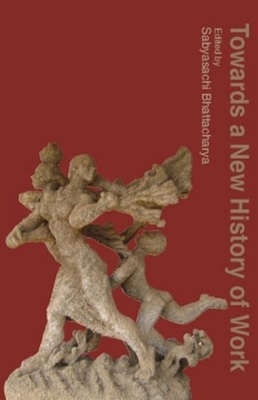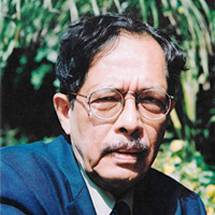

 Tulika Books
Tulika Books
Towards a New History of Work


Key Metrics
- Sabyasachi Bhattacharya
- Tulika Books
- Hardcover
- 9789382381358
- -
- -
- History > Asia - India & South Asia
- English
 Secure Transaction
Secure TransactionBook Description
Every time we use the computer or the internet or the cyber networks we experience this transformation - which brings home to us the fragility of the conventional boundary between 'labor' and 'work'. The information technology revolution has created a new space for some workers as a result of the relocation and dispersal of work, often to the home of the workers. In fact, this situates such information technology workers in a position analogous to that of the late medieval or early modern European artisans - an interesting recursive pattern in labor history. Moreover, in the less developed countries where capitalist relations do not exhaustively define all production relations, we have a large proportion of the economically active population without being in someone's employment, and thus it seems that the term 'worker' possibly accommodates them better than the term 'laborer'. Further, when we consider the long run of history, the same proposition holds for the workers of the pre-capitalist era in many countries - i.e. the artisans and others who remained self-employed even if they were tied to a dependency network. The term 'laborer' appears to be inappropriate, as some authors in the present volume have argued, to people of that class in the pre-modern period in India or elsewhere. There are many other issues which need rigorous re-thinking in the agenda of constructing a 'history of work'. In considering how the nature of 'work' is being transformed, the term 'work' needs to be defined because in common parlance it means many things. If value addition to a marketed product or service is the criterion, a pro tem working definition accepted since Adam Smith, there are problems to sort out. For instance, there may be work which is socially useful but not marketed, e.g. the homemaker's or housewife's work, a vital question from the gender history point of view. These and many other questions surface in this volume.
Author Bio
Sabyasachi Bhattacharya (1938-2019), one of the foremost historians of modern India, died in Kolkata on Monday. He was 81 and suffering from cancer of the spinal cord for well over a year.
A prolific writer, he enjoyed a stature similar to historians Romila Thapar, K N Panicker and Sumit Sarkar. He made lasting contribution for his study of the working of the colonial regime and various economic aspects in colonial and post-colonial India.
On Monday historians recalled how, Bhattacharya, suffering from cancer, did not spare himself the rigour of editing a three volume Comprehensive History of Modern Bengal (1700-1950), to be published by Asiatic Society. As many as 65 scholars from India and abroad contributed to this book that has been sent to the press.
Despite illness, he remained intellectually active throughout 2017 and 2018 and his last book, ‘Archiving the British Raj: History of the Archival Policy of the Government of India, with Selected Documents, 1858–1947’, was published in November 2018.
RELATED STORIES
They are a strong side: Javed Miandad explains how Pakistan can beat India in T20 World Cup
'They are a strong side': Javed Miandad explains how Pakistan 'can beat' India in T20 World Cup
BTS: Is V dating Paradise Group chairmans daughter? HYBE issues a statement
BTS: Is V dating Paradise Group chairman's daughter? HYBE issues a statement
CBSE class 10, 12 term 1 board exam datesheet on October 18
CBSE class 10, 12 term 1 board exam datesheet on October 18
Ashwin miscalculated: Sunil Gavaskar breaks down final over drama as KKR beat DC in thriller to reach final
'Ashwin miscalculated': Sunil Gavaskar breaks down final over drama as KKR beat DC in thriller to reach final
The disciplined approach marked Bhattacharya’s academic journey down the years.
His monumental work, ‘Financial Foundations Of the British Raj: Ideas And Interests In The Reconstruction Of Indian Public Finance (1858-1872)’, which was first published in 1971 and has run into its seventh edition, is considered a classic. ‘The Colonial State: Theory and Practice’ is another of his esteemed books.
Bhattacharya initially earned his repute as a historian with his seminal works on economic history of India under the colonial rule, based on archival research, and later also worked on political and cultural-intellectual history of Independent India.
Historians also valued his journey from the strict confines of the area of specialisation -- economic history -- to providing an all-encompassing view of India, placing it in the context of world history for colonial and post-colonial periods.
Bhattacharya was also reputed as a teacher and administrator. He had served as the vice-chancellor of Visva-Bharati University (1991-1995) and Chairman of the Indian Council of Historical Research (2007-2011), besides teaching history at Jawaharlal Nehru University (1976-2003) (JNU).
He played a pivotal role behind the foundation of Centre for Historical Studies at JNU.
Bhattacharya also held teaching and research positions at St. Antony’s College (University of Oxford), University of Chicago and El Colegio de Mexico.
Besides having written more than three dozen books, he was the chief editor of Indian Historical Review and the general editor of Towards Freedom, a series on the movement for Independence in India published by Oxford University Press in collaboration with ICHR.
‘Essays in Modern Indian Economic History’ (2015) and ‘Towards a New History of Work’ (2017), two books he edited during the last phase of his life, continued with the same mission of chronicling the country’s economic history.
He also co-edited ‘Workers in the Informal Sector: studies in labour history, 1800-2000’ (2005), ‘The Vernacularization of Labour Politics’ (2016) and ‘The Past of the Outcast: Reading in Dalit History’ (2017).
Among his works on India’s cultural and intellectual history are ‘The Mahatma and the Poet’ (2011), ‘Vande Mataram: A Biography of a Song’ (2013), ‘The Idea of Civilization in the Indian Nationalist Discourse (2011)’, ‘Cultural unity of India’ (2013), and ‘Rabindranath Tagore: An Interpretation’ (2016).
He is survived by his wife, Malabika and daughter, Ashidhara Das. His last rites will be performed on Wednesday.
Source: Hindustan Times
Videos
No Videos
Community reviews
Write a ReviewNo Community reviews